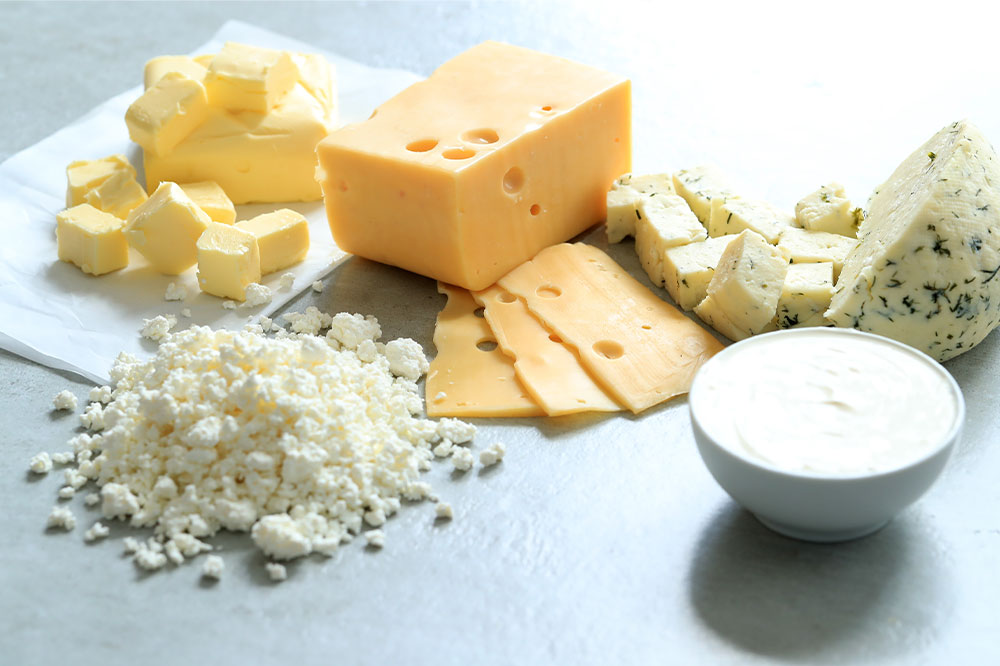
10 things to avoid for preventing and managing skin conditions
Skin conditions like acne and eczema are often the result of an unhealthy lifestyle, environmental pollution, or genetic factors. Sometimes ongoing treatment can also cause skin disease as a side effect. While one may use ointments and creams to keep the skin healthy, complementing them with the right lifestyle changes and proper nutrition can be more effective in the long run. Here is a list of things to avoid to prevent and manage skin conditions.
Foods with a higher glycaemic index
Glycaemic index (GI) indicates how fast (or slow) foods rich in carbs can affect blood sugar levels. Foods like potatoes and white bread have a high GI, so they cause almost instant blood sugar spikes. This leads to glycation, a process where sugar molecules bind with the skin collagen cells. As collagen function reduces, one may notice wrinkles and creases on the skin.
Artificial sweeteners
Foods with processed sugar can harm the skin. The sugar molecules attach with elastin and collagen, which prevents them from being flexible, leading to premature aging of the skin. Therefore, it is advisable to steer clear of artificial juices, aerated soft drinks, pasta sauce, etc.
Dairy products
People who consume cow’s milk are more prone to acne breakouts. Milk increases insulin levels, ultimately increasing sebum or oil production on the skin. A few items to avoid are butter, ice creams, and cheese made from cow’s milk.
Fried foods
Fried foods like French fries, nuggets, and chips also wreak havoc on the skin by increasing oil production. They can even lead to skin inflammation. Hence, although tempting, it is best to eliminate these foods from the menu.
Whey protein
Whey protein increases the production of IGF-1, a hormone that activates sebum production, leading to higher chances of acne breakouts.
Stress
Stress and anxiety can increase the production of a hormone called cortisol. An excess of this hormone leads to skin inflammation, which can trigger an eczema outbreak on the skin. Stress can also lead to acne, hives, rosacea, and psoriasis. Therefore, one must avoid stress by indulging in exercise and meditation.
Sleep deprivation
The body needs seven to eight hours of sleep every night. When asleep, the skin cells go through the process of repairing and rejuvenation. Not sleeping well can affect this process and instead stimulate stress hormones that cause various skin diseases.
Going out without sunscreen
The sun’s ultraviolet rays can harm the skin, especially with frequent exposure. Therefore, people who spend a lot of time outdoors in the afternoon should use quality sunscreen. Not doing so can lead to premature skin aging and other skin diseases like solar elastosis, actinic keratosis, and even skin cancer.
Using poor-quality skincare products
Using random skincare products, especially ones with chemicals, can harm the skin. Therefore, it is best to invest in quality products, preferably those that use natural ingredients. One must also avoid sharing makeup brushes and other accessories.
Poor skin hygiene
Washing the face with water helps rid tiny particles and dust from blocking the pores, which keeps the skin fresh. However, one must be gentle and not scrub hard, especially when dealing with rashes. Touching the face and popping or picking the affected region must also be avoided.
Besides following these tips, a person may require treatment if suffering from severe skin diseases like plaque psoriasis. Plaque psoriasis is a condition where itchy and scaly patches appear on the skin. TREMFYA® is a popular treatment for adults with moderate to severe plaque psoriasis, specifically those who can benefit from phototherapy or systemic therapy. However, it can have side effects like upper respiratory infections, diarrhea, and joint pain.


